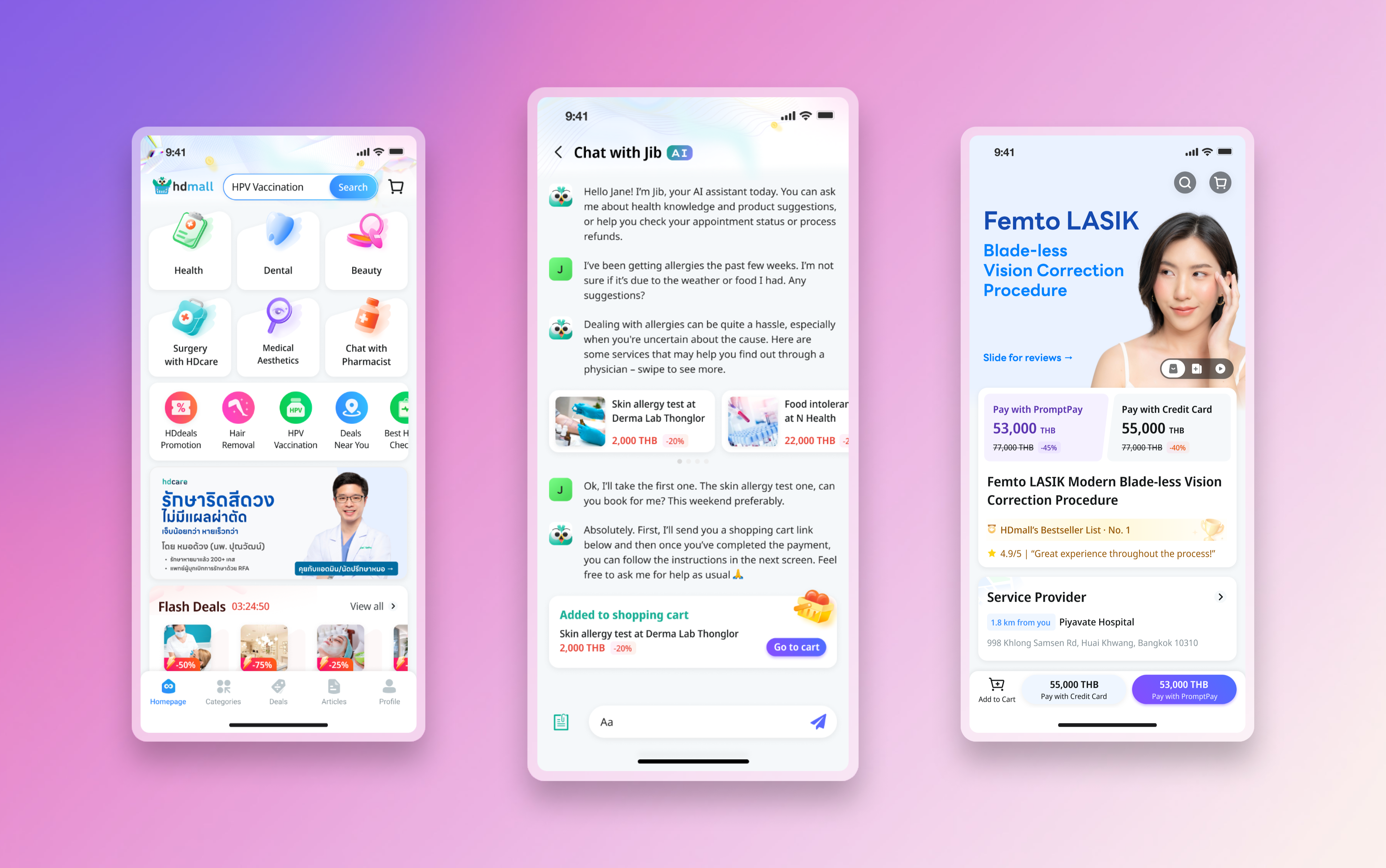HD raises $5.6M to build a Sierra AI for healthcare in Southeast Asia
Chatbots have come a long way. For years, they were limited to responding with predetermined replies that followed a simple logic structure. But customers can have complex problems, and no tree-diagram of possible replies can have enough branches to account for all the edge cases that arise. Thankfully, the advent of large language models has finally rendered chatbots useful. Armed with mountains of data, startups are now leveraging generative AI to create custom chatbots for all sorts of businesses and use cases, particularly those where people want to be sure about what they’re buying.
Thailand’s HD is building chatbots aimed at one such industry: healthcare. The company started as a marketplace for third-party healthcare and surgery services, and sees a strong case for developing conversational AI for the healthcare customer journey.
“The products we are selling are not the typical stuff you buy on Amazon. They are hospital services, so people shop the same way as they do offline,” co-founder Sheji Ho told TechCrunch.
Even though each product has a description on HD’s marketplace HDmall, Ho says people still prefer to ask first. “90% of the chat messages are people asking about product information. The chat commerce process [is similar to] the offline experience,” he explained.
To advance its AI ambitions, HD recently raised a $5.6 million Series A round led by SBI Ven Capital, a subsidiary of the Japanese financial giant SBI Group, through its joint fund with Kyobo Securities from South Korea and NTU Singapore’s NTUitive. M Venture Partners, FEBE Ventures, Partech Partners, Ratio Ventures, Orvel Ventures, and TA Ventures also participated in the round.
AI for Southeast Asia
Ho says HD is working on building the “Sierra AI of the Southeast Asian healthcare industry.”
Over five years, Ho and his team saw that the faster HD’s representatives responded to inquiries, the higher the conversion rate. “So there’s a very good case to use AI to automate that process,” he said. The company not only expects conversational AI to help cut costs, it will allow staff to focus on higher-value tasks, like answering more complex customer questions.
But Ho and his team seem to have a realistic view of what they can achieve. It will not be able to match U.S. firms that have “nearly limitless access” to powerful GPUs, talent and venture capital, so the company is focusing on building vertical AI, with local data being its moat.
“Emerging markets need to compete and take advantage of AI by using the data they have — proprietary data that nobody else has,” said Ho. “We see that happening in other places, too. Some call this vertical AI, where they use a vertical domain-specific data that is proprietary to a certain business or industry. Then they build on top of that, and they enhance the model to the point where they have an AI application that is practical and they can start monetizing.”

HDmall. Image: HD
HD therefore plans to train chatbots with the sea of anonymized transaction, chat, FAQ, and product catalog data it has accumulated over the years. Currently, 30% to 40% of the company’s transactions are done through chat commerce with customer service workers.
HD is planning to use the new capital to roll out a chatbot for its marketplace within 3 months, and open up the technology for third-party use by the end of this year. Potential customers are hospitals and clinics that need 24/7 customer support. The startup has already worked with some 2,000 healthcare providers in Asia, which will enable it to fine-tune its base language model for the healthcare domain. Eventually, the chatbot service will give the company a new SaaS revenue stream in addition to its marketplace commissions.
Fundraising post-pandemic
Like many other startups, HD cut costs and aimed for sustainable growth during the COVID-19 pandemic. The company “didn’t necessarily need to raise,” as it was heading towards profitability on 2x year-on-year growth after the pandemic was over, but Ho also saw an opportunity to move faster when others were slowing down.
“You hear people saying ‘You should raise money when you don’t have to raise.’ If we raise now then everything else will be cheaper. For example, customer acquisition is cheaper because everyone else stopped advertising in a recession. Talent acquisition also [costs less] because companies are unfortunately laying off people.”
Globally, startup valuations have been on a decline for the last few years. HD hasn’t escaped that wave, but Ho says he recognized the benefit of accepting a more moderate valuation early on.
“I think it’s pointless for companies to worry about valuation at such an early stage. We’ve seen that over the past few years, especially 2021, when companies started the race at such high valuations,” he said, pointing as an example to Indian health tech unicorn, Prystn, which lost half of its valuation after a period of frenetic growth.
“Because they raised at such a high valuation, they were forced to grow super aggressively, and that leads to founders and companies cutting corners. You can’t cut corners when you’re in healthcare and you’re dealing with people’s lives,” Ho said.


